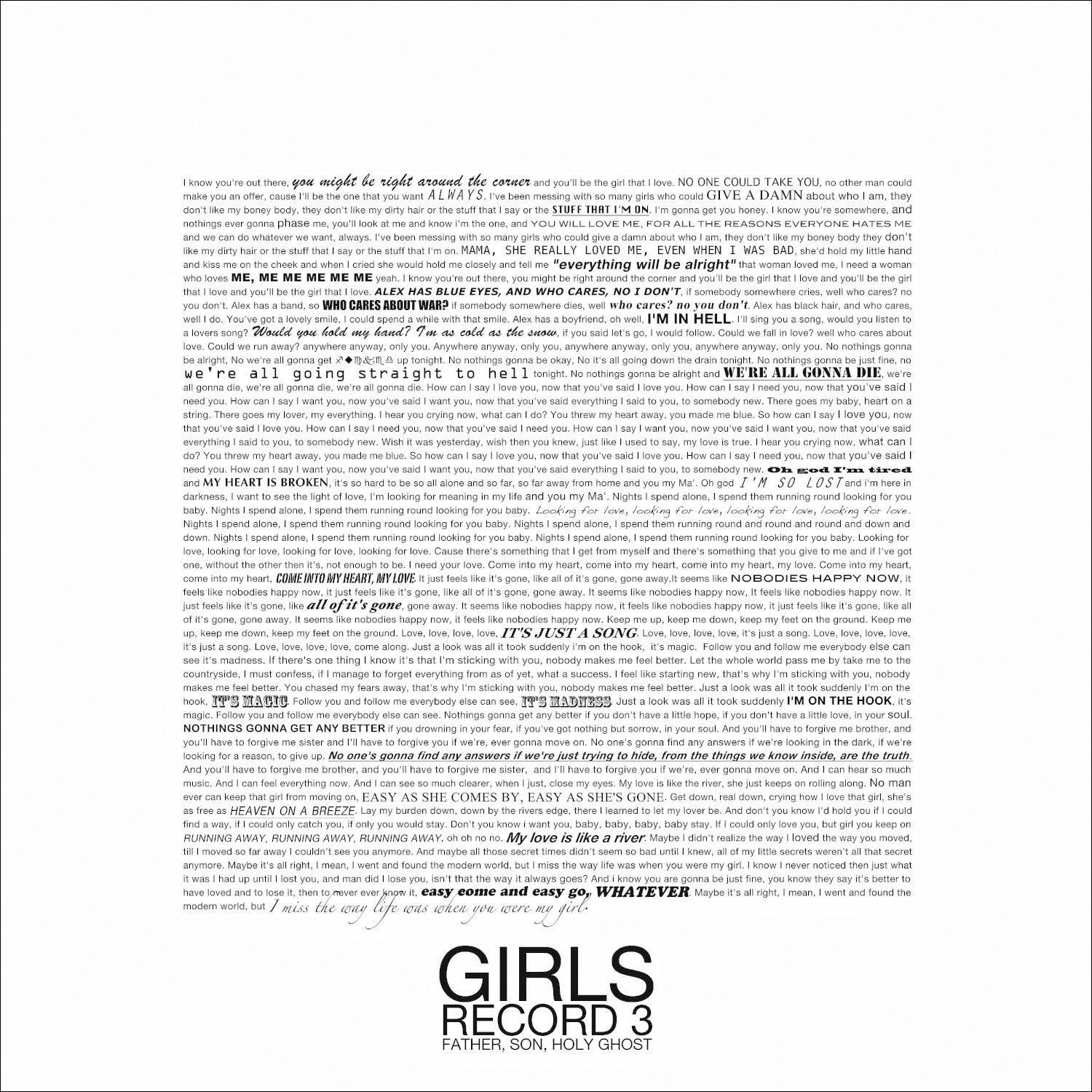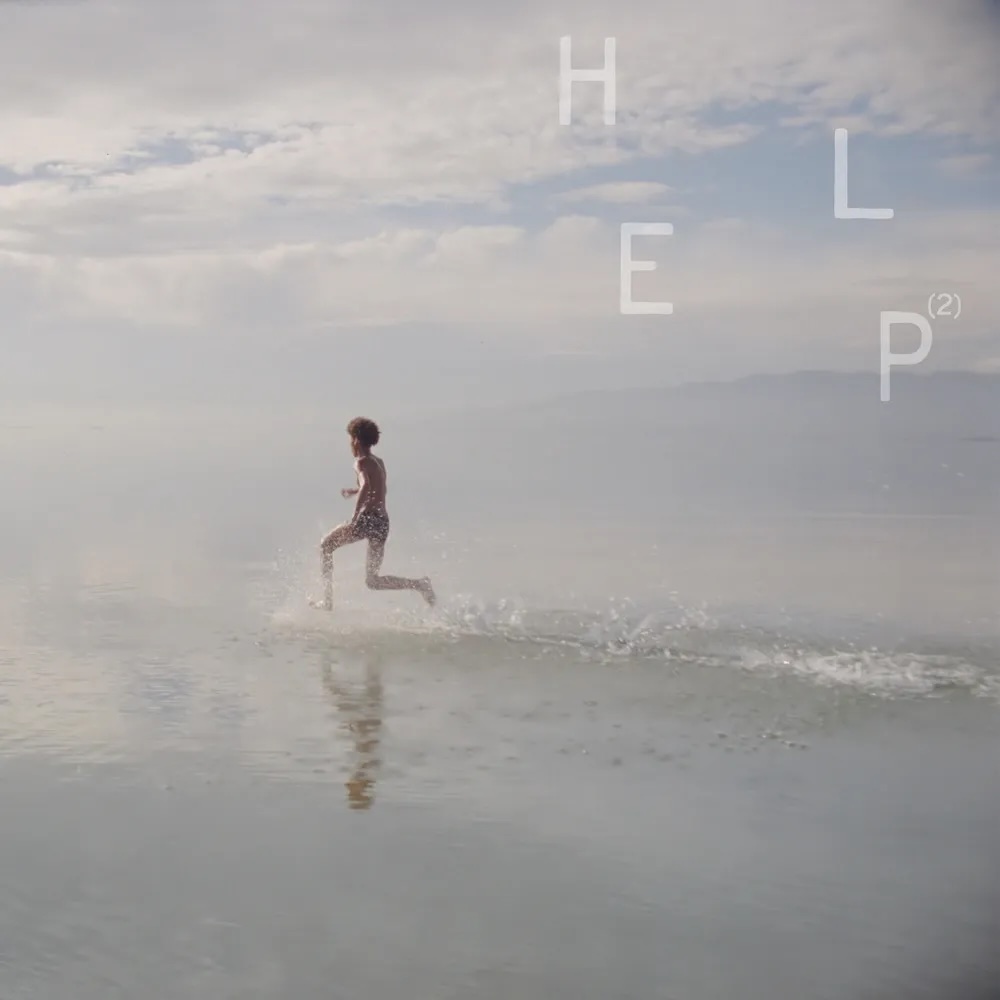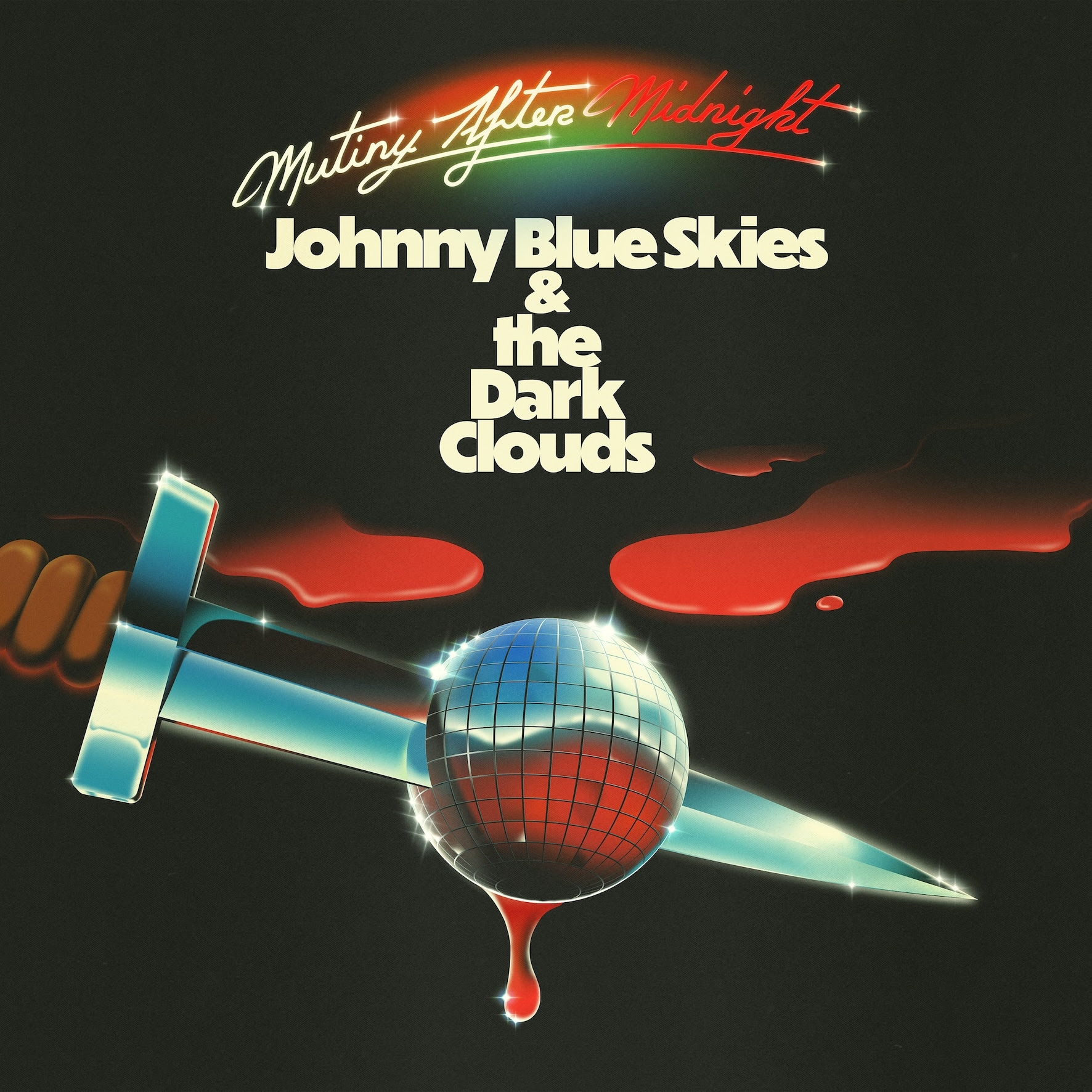- True Panther Sounds
- 2011
The golden age of Girls was over almost as soon as it started. “Conceptually, the band Girls... kind of never really came together,” Christopher Owens told a reporter back in 2012. Owens was Girls’ lead singer and primary songwriter, and one of the San Francisco group’s only two permanent members; bass player and production wiz Chet “JR” White was the other constant. “I added it up once and something like 21 people had played in Girls over two albums and one EP,” Owens explained in that same interview. “That’s extremely frustrating and doesn’t really show that there ever really was a band, in my mind.” This might have been how he felt at the time, but in the minds of 21st century rock ‘n’ roll enthusiasts, Girls were always a band. For a lot of us, Girls were the band. Until the day they weren’t.
Owens tweeted that he was leaving Girls in the summer of 2012, less than a year after the release of their sophomore full-length, Father, Son, Holy Ghost. That record, which turns 10 this week, is a meticulously crafted collection of big, soulful rock tunes. Just like with Album, Girls’ gloriously scuzzed-up 2009 debut, Father, Son, Holy Ghost found White and Owens taking cues from a deep well of vintage reference points: doo-wop, surf punk, girl groups, grunge. But they added to the mood board, too, this time via lavish nods to ’70s folk ballads, heavy metal, and church music. The fact that they made generous use of these eclectic touchstones in a way that never scans as hackneyed was a feat. That the result is one of the more indelible and heartstring-tugging rock records of its era is something of a miracle.
Owens and White seemed to understand that they weren’t reinventing the wheel, an awareness that helps the songs on Father, Son, Holy Ghost transcend homage; there’s not a stinker in the bunch. Opener “Honey Bunny,” a glammy earworm about Owens’ optimistic holdout for unconditional love, charms with perky drums, summery chords, and the occasional “Wipe Out”-style riff. It also contains some of Owens’ most unambiguously confessional lyrics, with specific references to the fact that most girls are not big fans of his scrawny frame, his unwashed hair, or the substances he’s prone to ingesting. But he never loses faith: “I know you’re out there,” he sings, his trademark snot-nosed timbre injected with just the right amount of sweetness. “And you will love me/ for all the reasons everyone hates me.”
Later, the tempo slows and “Honey Bunny” changes focus to Owens’ mother: “Mama, she really loved me/ even when I was bad/ she'd hold my little hand/ and kiss me on the cheek.” It’s an affecting passage, one that becomes extra meaningful when you consider Owens’ well-documented early life as a member of a Christian cult, an upbringing scarred by tumult and tragedy. When he fled the cult at 16, he left his mother behind too. “She’s always thinking that I think she’s a bad mom,” Owens explained to The Atlantic. “When I played [“Honey Bunny”] for her, it was a very emotional moment. Because I don’t begrudge her at all. It’s just one of those situations, you know. It wasn’t her fault.”
“Honey Bunny” is a great opener because it sets up so many of the record’s themes: hope and heartache, failure and forgiveness. But more than anything, Father, Son, Holy Ghost seems to be an album about searching. For romance, sure, but also for something bigger. A feeling maybe. Something lost and found and lost again — or maybe it never existed in the first place. It’s a relatable condition, and one that’s made to feel even more universal thanks to Owens’ straightforward lyrics: “All of it's gone, gone away/ it seems like nobody's happy now,” he sings on the pastoral “Just A Song.” Then there’s “My Ma,” which again finds Owens singing directly to his mother: “It’s so hard to feel so alone/ and so far / so far away from home.” Even “Magic,” a song so giddy-sounding you could almost imagine the Brady Bunch kids singing it in matching jumpsuits, feels like a fantasy or a flashback -- a snapshot of the way life was, or how it could be. The searching theme feels most literal on the nearly seven-minute-long lead single, “Vomit,” an existential epic with organs, gospel singers, and a bleary, climactic guitar solo. It doesn’t feel hyperbolic to call the song a masterpiece. It’s a contender for the best driving-around-aimlessly-at-nighttime rock song of the 2010s, right up there with Cass McCombs’ “County Line” and Pure X’s “You’re In It Now.”
Across the record, old clichés are constantly being made to feel fresh again -- because of that awareness I mentioned earlier, but also because of the genuine emotions with which they’re packaged and delivered: “You know they say it's better/ to have loved and to lose it/ than to never ever know it/ easy come and easy go, whatever,” Owens sings lugubriously on album closer “Jamie Marie.” (The “whatever” is doing a lot of work there.) White and co-producer Doug Boehm’s behind-the-scenes work injects energy and emotion into the album’s time-tested aesthetics, too. Everything sounds crisp and considered, full of flourishes that might have felt indulgent if they weren’t so damn beautiful.
Girls came onto the scene at the apex of the buzz band era, a period when the blog hype to overexposure-induced backlash pipeline was functioning at record velocity. If you’d have told me back then that I’d eventually be using the word “underrated” to describe a Girls record, I might have laughed in your face. But here I am doing precisely that, trying my best to work out why a once-adored band’s legacy has become somewhat shrouded over the past 10 years. Maybe it’s because of their confusing breakup, which felt somehow both abrupt and painfully drawn-out. Maybe it’s that straight-up classic-sounding rock and roll spent much of the past decade relegated to the sidelines. Or maybe this is just how time sorts things.
Eleven months ago, in October 2020, JR White died unexpectedly at his family home. He was 40 years old. In the time since releasing Father, Son, Holy Ghost and parting ways with Owens, White had worked as an engineer and producer on projects by Tobias Jesso Jr and Cass McCombs, among others. Still, it feels safe to say his contributions to Girls’ three official releases will be his best-remembered work. It stings a little to revisit Father, Son, Holy Ghost -- an album about looking for love in a world that sometimes seems determined to keep it from you -- in light of this tragedy. “I hope you feel nothing but peace now my brother,” Owens tweeted upon hearing of his former bandmate’s passing. “I love you, and thank you for believing in me, and for what you brought to the table. Always and Forever, and I’ll always be proud of you…”
Recently, when I mentioned Girls to some friends -- indie rock fans a half-decade my junior -- I was surprised to learn that they’d never heard of them. A few days later, one of them texted me to say that they couldn’t stop listening, that they felt sad they would never get the chance to see them perform live. This reaction made sense to me; of course songs so warm, well-made, and familiar-feeling wouldn’t sound stale to a first-time listener in 2021. “I would rather have been a band that didn’t fit in at the time,” White told Paste in 2013, during a rare post-breakup interview. “When we first started [Girls] I didn’t care if we were big, I just wanted a band that big brothers and big sisters in the future would play for their little brothers and little sisters and be like check this out, this is a band that no one really knows and they should.” Rereading this quote today, I can’t help but smile. His wish has already started coming true.






